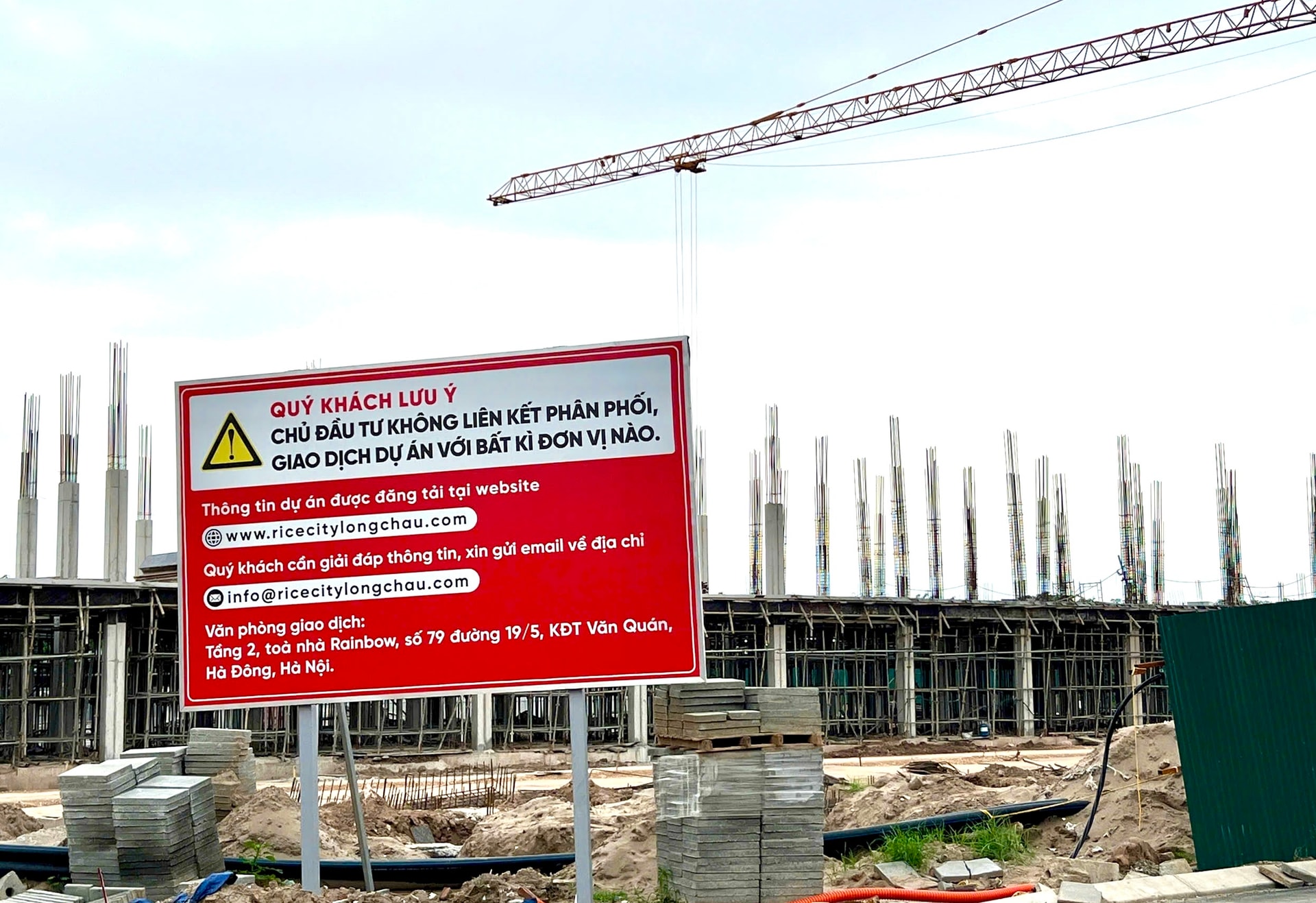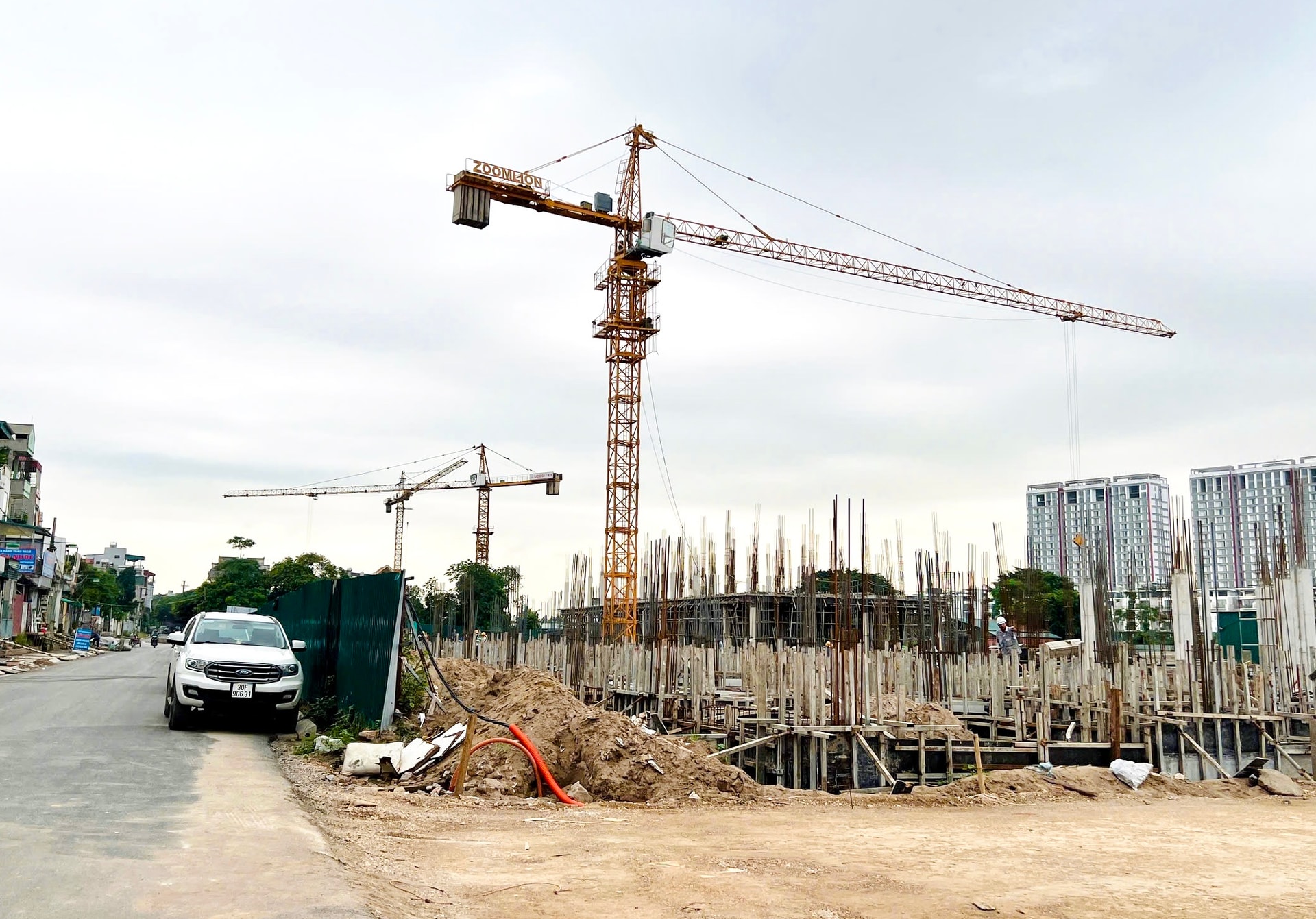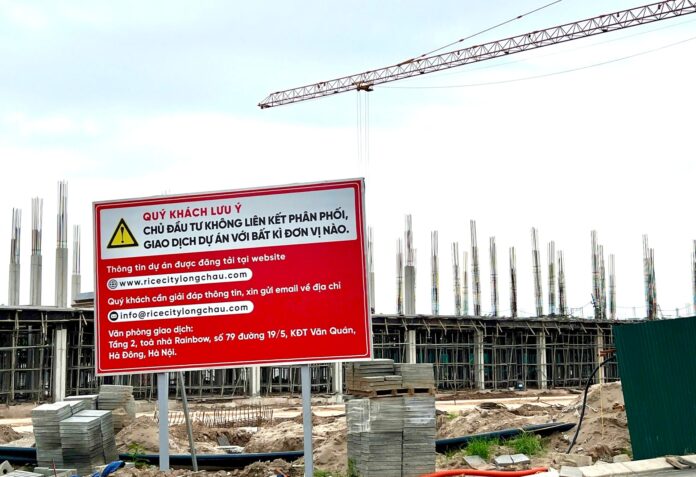
The tentative selling price of the Rice City Long Châu social housing project sets a new record for social housing prices. Photo: Thanh Tú
Social Housing Prices Reach New Heights
The Rice City Long Châu social housing project in Long Biên District has captured the attention of many as the joint venture of investors, Him Lam Thủ Đô JSC and BIC Vietnam, announced its selling price. The project will offer 1,699 social housing units for sale, 245 units for rent-to-own, and 36 units for on-site resettlement. The average tentative price is set at VND 26-27 million/m2.
With this pricing, the smallest unit in the project, measuring 32m2, will cost around VND 800 million. Meanwhile, the largest unit, spanning 77m2, will be priced at approximately VND 2 billion. This price range is unprecedented for a new social housing project in Hanoi and is a first in the history of social housing development in Vietnam.
Previously, the NO1 Hạ Đình social housing project in Tân Triều, Thanh Trì District, had a tentative selling price of approximately VND 25 million/m2. Another project in Mê Linh District, offering 700 units, is expected to be priced at VND 21.2 million/m2. Compared to the previous range of VND 13-17 million/m2, social housing prices have significantly increased.
Regarding this matter, Nguyễn Anh Dũng, Head of the Department of Economics and Construction Materials at the Hanoi Construction Department, shared that announcing social housing prices is a crucial step in providing transparency and helping individuals make informed decisions based on their financial capabilities.
After nine months from the project’s completion, the Hanoi Construction Department will conduct a retrospective review to ensure compliance with social housing criteria, including price, area, and other related aspects. Any violations or discrepancies will be promptly addressed.
This retrospective review is an essential part of the government’s management process, ensuring fairness and transparency in implementing social housing projects. It also helps prevent speculation and price manipulation, maintaining a healthy real estate market.

Multiple factors contribute to the rising costs of social housing. Photo: Thanh Tú
Exploring Solutions to Reduce Input Costs
Chử Văn Hải, Head of the Department of Social Housing Development and Management at the Department of Housing and Real Estate Market Management (Ministry of Construction), explained that the prices of social housing projects vary depending on the design requirements and scale set by the investors.
Previously, social housing prices in Hanoi were below VND 20 million/m2. The current increase can be attributed to rising labor and construction material costs.
Social housing receives government-mandated support to reduce costs. However, it must adhere to the same quality and standard criteria as commercial apartments. The distinction lies in area and design.
Nguyễn Quốc Anh, Deputy General Director of Batdongsan.com.vn, attributed the rising costs of social housing to the high compensation and site clearance expenses in Hanoi, despite social housing projects being exempt from land use fees.
With the scarcity of “clean” land, acquiring a suitable plot for development already accounts for a significant portion of the total investment. Additionally, material and labor costs, along with financial expenses (loan interest), contribute to the final selling price.
“The limited supply of approved and implemented social housing projects in Hanoi over the years can be counted on one hand,” added Mr. Quốc Anh. “Meanwhile, the demand from low-income individuals, civil servants, and other eligible buyers continues to grow, creating a supply-demand imbalance that further drives up prices.”
In reality, the rising prices of social housing make homeownership a distant dream for low-income earners. With prices ranging from VND 25-27 million/m2, a 50m2 unit would cost VND 1.25-1.35 billion. As a result, social housing is becoming “affordable commercial housing,” deviating from its original target audience.
According to real estate experts, the increase in social housing prices also creates societal and market pressure. When low-income individuals cannot afford social housing, they turn to other segments, putting pressure on the affordable commercial housing market and the rental sector, leading to price increases in those segments as well.
To address this situation, Mr. Quốc Anh suggested providing preferential credit packages for investors in social housing development and controlling input costs to ease the burden on selling prices.
Additionally, streamlining and simplifying procedures and removing unnecessary barriers would expedite social housing project implementation, reducing opportunity costs for investing businesses.
He also emphasized the importance of promoting the development of professionally managed social housing rental models and constructing social housing in satellite cities instead of the inner city, where land and site clearance costs are exorbitantly high.
















